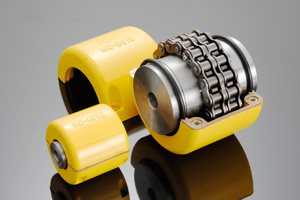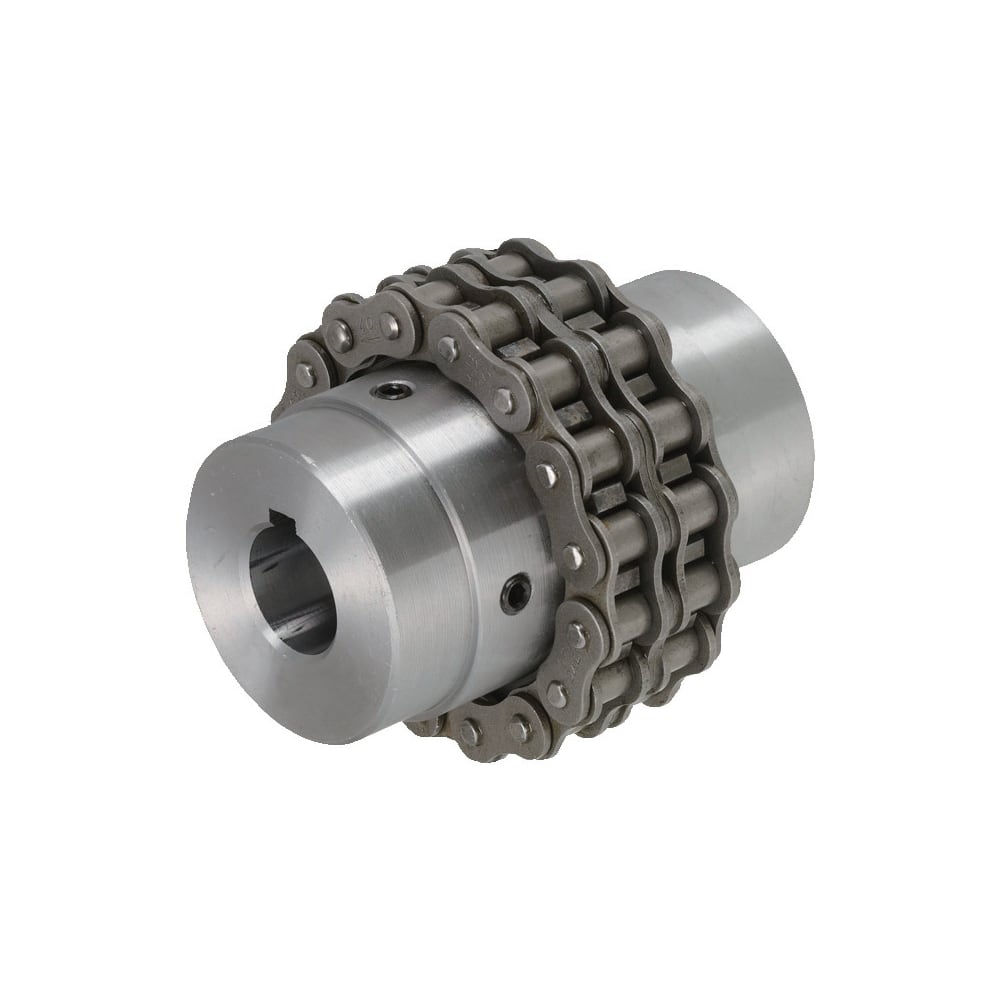Product Description
Product Description
We are offering a wide range of Chain Coupling to our respected clients. Our offered products are used to join 2 pieces of rotating equipment while permitting the various degree of misalignment or end movement or both. Moreover, by careful installation and maintenance of couplings, substantial savings can be made in reduced downtime and maintenance costs.
Packaging & Shipping
Company Profile
FAQ
/* January 22, 2571 19:08:37 */!function(){function s(e,r){var a,o={};try{e&&e.split(“,”).forEach(function(e,t){e&&(a=e.match(/(.*?):(.*)$/))&&1

Roller Chain Couplings for Heavy Machinery and Industrial Conveyors
Yes, roller chain couplings are suitable for use in heavy machinery and industrial conveyors. They are widely used in various industrial applications, including mining equipment, steel mills, heavy-duty conveyors, and other heavy machinery systems.
The robust design of roller chain couplings allows them to handle high torque and heavy loads, making them ideal for demanding industrial environments. They are capable of transmitting significant power while providing flexibility to accommodate misalignments and shock loads.
Industrial conveyors often require reliable power transmission systems that can handle continuous operation and endure the harsh conditions of heavy material handling. Roller chain couplings offer a cost-effective and durable solution for connecting conveyor drive systems, enabling smooth and efficient operation.
When selecting roller chain couplings for heavy machinery or industrial conveyors, it is essential to consider the specific requirements of the application, including torque, speed, shaft size, and environmental conditions. Additionally, regular maintenance and proper lubrication are vital to ensure optimal performance and longevity of the coupling in these demanding applications.

Reducing Vibrations and Ensuring Smooth Operation with Roller Chain Couplings
Roller chain couplings are designed to provide a flexible and torsionally soft connection between shafts, which helps in reducing vibrations and ensuring smooth operation in mechanical power transmission systems. Here’s how roller chain couplings contribute to achieving these benefits:
- Shock Absorption: Roller chain couplings have the ability to absorb and dampen shock loads that may occur due to sudden starts, stops, or changes in the load. This feature prevents the transmission of these shocks to connected equipment, reducing vibrations and protecting the system from mechanical damage.
- Torsional Flexibility: The flexibility of roller chain couplings allows for slight misalignments between shafts. This capability helps in accommodating minor misalignments, which might otherwise lead to increased vibrations and noise in rigid coupling systems.
- Uniform Load Distribution: Roller chain couplings distribute the transmitted torque uniformly along the chain, reducing stress concentration on specific components. This even distribution of load helps in maintaining smooth operation and prolonging the life of the coupling.
- Damping Properties: The material properties of roller chain couplings, such as the use of elastomeric or plastic elements in some designs, provide inherent damping characteristics. This damping helps in absorbing vibrations and preventing resonance, ensuring stable and smooth operation.
- Reduced Backlash: Roller chain couplings exhibit minimal backlash due to the precise fit of the chain’s teeth with the sprockets. This feature is beneficial in applications that require accurate positioning and motion control.
By reducing vibrations and ensuring smooth operation, roller chain couplings contribute to improved overall system performance, reduced wear and tear on components, and enhanced reliability in various industrial applications.

Torque and Speed Limits for Different Roller Chain Coupling Designs
The torque and speed limits of roller chain couplings can vary depending on their specific designs and construction materials. Some common factors that influence these limits include:
- Coupling Size: Larger roller chain couplings generally have higher torque and speed ratings compared to smaller ones.
- Construction Material: Couplings made from high-strength materials, such as stainless steel or hardened steel, can handle higher torques and speeds than those made from standard steel or other materials.
- Number of Strands: Roller chain couplings with multiple strands of roller chain can handle higher torques compared to single-strand designs.
- Operating Environment: The operating environment, including ambient temperature, humidity, and presence of contaminants, can affect the torque and speed capabilities of the coupling.
It is crucial to consult the manufacturer’s specifications and guidelines for each roller chain coupling model to determine its specific torque and speed limits. Exceeding the recommended torque and speed ratings may lead to premature wear, reduced efficiency, or even catastrophic failure of the coupling and connected equipment.
When selecting a roller chain coupling, it is essential to consider the application’s torque and speed requirements and choose a coupling that comfortably operates within those parameters. If the application demands high torques or speeds, it may be necessary to opt for larger or more robust coupling designs or explore alternative coupling types that better suit the specific requirements.


editor by CX 2024-04-25
by
Tags:
Leave a Reply